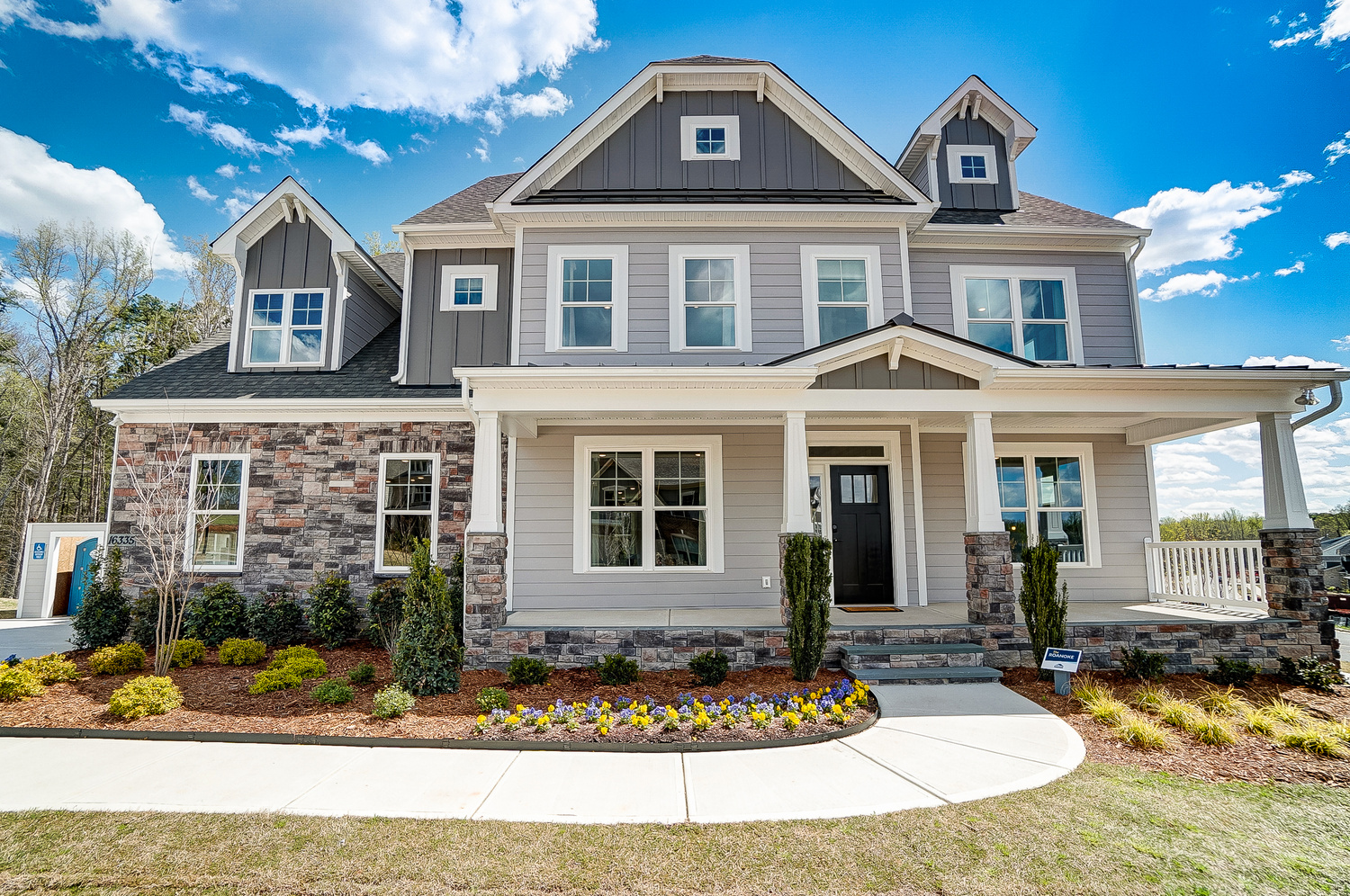Buying a home is a big step, but just because you have a mortgage doesn't mean you're locked into it forever. If you closed on a loan with a higher rate or other less-than-ideal terms, you may be able to refinance. For many people, refinancing results in substantial cost savings, making it much easier to afford housing.
This is an important strategy for homebuyers who want to buy a home now but have concerns about interest rates, which are higher than they have been in recent history. Home prices are rising and locking in a home now at today's prices can be a valuable decision that results in equity later on. The option to refinance in the future can help alleviate concerns about the cost of financing over the long term.
Read on for answers to some of the most common questions related to refinancing, such as what it is and how long it takes.
Refinancing is the process of paying off your current mortgage and replacing it with a new mortgage. One of the best reasons to refinance is to take advantage of lower interest rates. If you close on a loan with a rate of 6% and rates later fall to 3%, refinancing can help you lock in that 3% rate, reducing the amount of money you owe over time.
Refinancing also makes it possible to change the term of your mortgage. For example, if you currently have a 15-year term, you may be able to refinance with a 30-year term, reducing your monthly payment amount and giving you more time to pay off the loan.
Although there are ways to get equity out of a home without refinancing, such as taking out a home equity loan or home equity line of credit (HELOC), sometimes it's easier to qualify for refinancing. Therefore, many people refinance their mortgages instead of borrowing against their equity. Use the mortgage rate calculator to determine if it makes sense for you to refinance.
The process of refinancing is very similar to the process you followed when you applied for your original loan. You have to find a lender, fill out the application, provide financial documentation, and close on the new loan. Although there are some programs that require no credit checks or appraisals, most often you should be prepared to hire an appraiser and/or give the lender permission to check your credit history.
In many cases, it takes just 30 to 45 days to complete the refinancing process. The exact timeline depends on your lender's requirements, however. For example, if your lender requires underwriting, it will take time for the underwriter to verify the information you've provided. If anything is missing or unclear, you may have to provide more details, increasing the amount of time it takes to close on the new loan.

"When can I refinance my house?" is one of the most common questions about refinancing. The answer depends on what type of loan you have. If you have a conventional mortgage, you may be able to refinance right away. You should expect to wait at least 6 months if you took out an FHA loan or a loan through the Department of Veterans Affairs. Technically, there's no limit to the number of times you can refinance, but it really depends on which lender you choose.
In the financial industry, equity is the difference between the value of your home and the balance on your mortgage. For example, if you owe $200,000 on a home worth $300,000, you have $100,000 in equity. Generally, you need at least 20% equity to get approved for refinancing; however, some lenders allow customers to refinance with as little as 5% equity.
You can use the amount of equity you have to calculate your loan-to-value ratio, which is what lenders use to determine if you meet their requirements. Your LTV ratio is your current loan balance divided by your home's appraised value. If you owe $200,000 on a home worth $300,000, you have a loan-to-value ratio of 66.7%. If you need 20% equity, then your LTV must be no higher than 80% (100% - 80% = 20%).
To qualify for refinancing, you must also have a steady source of income and an acceptable credit score. The exact requirements depend on the lender and the terms of the financing program. For conventional refinancing, you generally need a score of 620 or higher. Refinance loans through the Department of Veterans Affairs and the Federal Housing Agency require a score of at least 580. If you have a jumbo (or larger) mortgage, you'll need a score of at least 680 to refinance it.
Finally, your debt-to-income ratio needs to meet the lender's requirements. This ratio compares your monthly debt payments to your gross monthly income. For example, if you make $5,000 per month and have $2,000 per month in debt payments, your DTI is 40%. Your lender may have a maximum DTI of 36% to 50%, but it depends on the specific terms of the refinancing program.

If you want to refinance your mortgage, you have many options. The right one depends on several factors, such as the purpose of the refinance and the type of mortgage you already have. Below are some of the most popular types of refinances available.
A cash-out refinance allows you to borrow more than you owe on your original mortgage. This allows you to keep the difference between your old loan balance and your new loan balance. You can use the extra money to renovate your home, pay off high-interest debt, purchase a vehicle or take care of other financial matters. The new loan completely replaces the old loan, so you continue to make one monthly payment.
If you have an FHA loan, the FHA Streamline Refinance program allows you to lower your monthly payment without having to get a second home appraisal. There's even an option to refinance the loan without going through another credit check. The main drawback of this option is that you can't take out more than $500 in cash.
The VA Interest Rate Reduction Refinance Loan makes it possible to lower the interest rate on a mortgage obtained through a VA loan program. Even if you don't qualify for a lower rate, you may be able to lower your monthly payment, making housing more affordable.
With a rate and term refinance, the size of your mortgage stays the same, but you can lower your interest rate or take advantage of other favorable terms. Depending on the terms of the program, you may be able to lower your monthly payment or reduce the total amount of interest paid over the life of the loan.
A cash-in refinance allows you to pay a big chunk of your mortgage balance, which may help you qualify for a lower interest rate or smaller monthly payments. With this type of refinance, you have to pay in a large sum of money rather than taking out cash to cover expenses.

While mortgage rates are higher now than they were just two or three years ago, the cost to purchase a home is still rising. For many buyers, it makes sense to buy a home now at current prices and consider refinancing later if rates drop.
Eastwood Homes has something for everyone, from luxury townhomes to active adult communities in the following regions: Charlotte, Raleigh, Greensboro Area, Greenville, Columbia, Charleston, Atlanta, and Richmond.
We also have a team of lenders available to help you navigate the lending process and programs available to you. Please let us know if we can help!
From the Blog
Explore the latest and greatest news from Eastwood Homes.